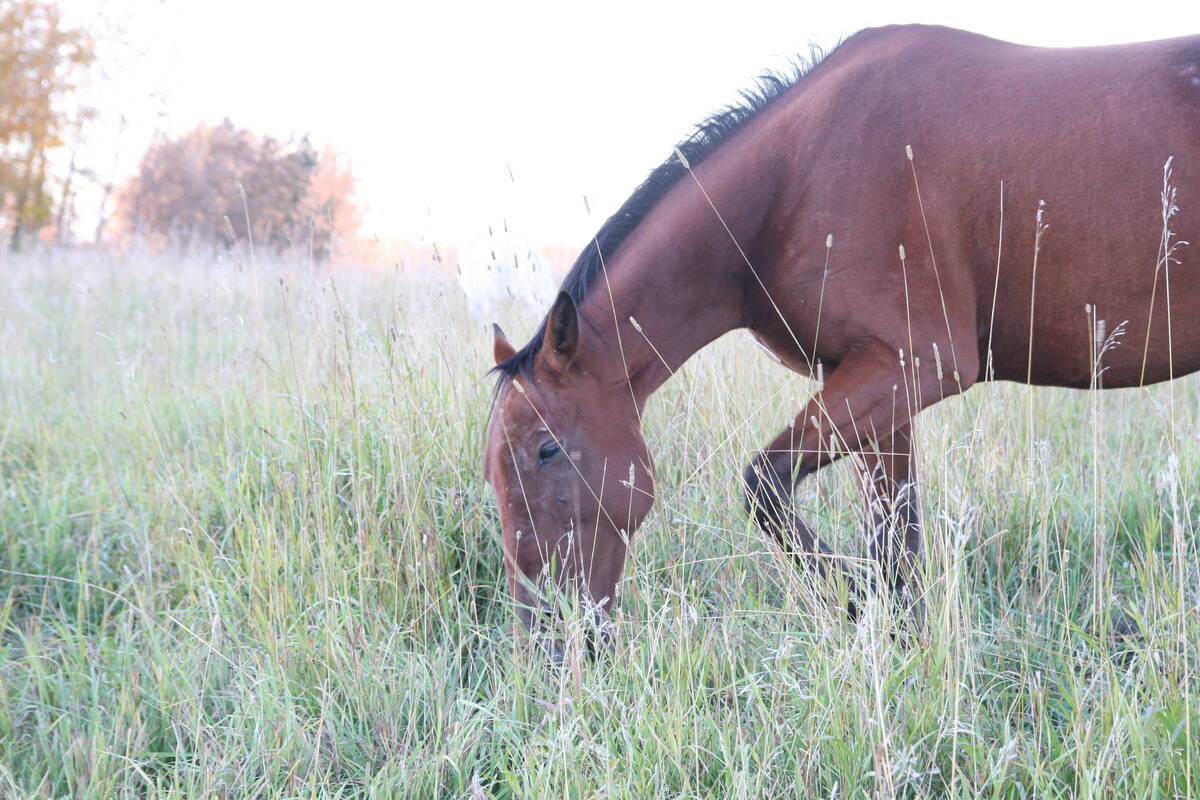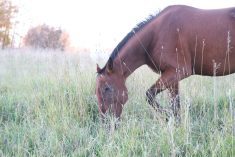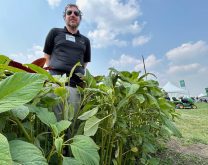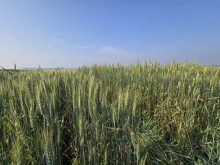“Many leaseholders felt Bill 31 was a major threat to their viability as a ranch or farm unit.”
LARRY SEARS
If you graze livestock on leased land in Alberta, Larry Sears wants you. Sears is chairman of the Alberta Grazing Leaseholders Association (AGLA), which currently has about 1,100 members out of a potential of about 6,000 grazing leaseholders in the province.
At a recent meeting here, Sears called for more leaseholders to get involved in the organization, especially in the northern part of Alberta.
Read Also

Beware giving horses too much iron
Horses consuming too much iron through diet or well water risk health problems like laminitis. Mineral testing forage and water is good practice for owners.
AGLA works with the support and direction of the membership and is run by a board and includes representatives from the Western Stock Growers Association (WSGA) and the Alberta Beef Producers (ABP).
Sears said AGLA was formed in 1998, when many leaseholders recognized the need for a lobby group to deal with their specific issues. The major issue that year was Bill 31, new legislation proposed by the provincial government, Sears said. “Many leaseholders felt Bill 31 was a major threat to their viability as a ranch or farm unit.”
Sears said that after a couple of years of local resistance, a number of people were able to communicate and work together to resolve the issues surrounding Bill 31. A steering committee has now been at work co-operatively for more than five years, identifying and resolving various issues.
Land Use consultations
Ongoing and new issues continue to keep the AGLA busy. Board members have been attending meetings to help define the parameters for the Land Use frameworks set up by Minister Ted Morton. The board has also been working with senior staff with Alberta Sustainable Resource Development (ASRD) to manage changes in the rental rate system for public land being used for agriculture.
AGLA has also been working to leasing rates, as the previous rates were developed in the 1960s and are no longer seen as adequate. It recently conducted a study to gather data to analyze the grazing units and animal hectares under lease in the province by holding consultations and surveying 1,300 leaseholders in the province. The group is currently trying to determine the best rates and returns for leaseholders in the province.
The new system needs to be transparent and based on current costs and data and reproduceable items, said Keith Lyseng, executive director of the Rangeland Management Branch of ASRD. He said the rental rates need to mirror other types of royalties.
AGLA is also investigating issues related to recreational access to agricultural lands. These regulations expired in March 2010, but will be extended for another five years, thanks to consultations with the AGLA, ABP, WSGA and Alberta FishandWildlife(AF W).Fishand Wildlife investigates regulatory infractions by recreational users onagriculturallands. TheAF W officers are able to issue tickets ranging from $150 to $500. Most of the tickets were issued to people who did not contact producers who were leasing agricultural lands, or who did not comply with conditions when on leased lands. By law, recreational users have to contact leaseholders if cattle are on the land.
When recreational access regulations came into effect, the decision was made by regulators that recreational users have access at their own risk. Lyseng said most people on private and public land do carry some sort of liability insurance. But new regulations allow the leaseholder to have no liability for the activities of the recreational user.
For more information contact Larry Sears at 403-539-2481.















